AI Grants and Funding Available in Quebec for 2026
Accelerate AI adoption with Quebec and Canadian funding. Find grants, tax credits, and co‑funding for research, pilots, and commercialization.
Across Quebec, organizations can access a dense ecosystem of artificial intelligence funding that supports research, technology adoption, skills, and commercialization. Programs range from Quebec ministry subsidies to federal grants and tax credits, with specific options for SMEs, corporates, and non‑profits. This directory outlines the main opportunities, eligibility patterns, and application practices to help you plan AI projects with confidence.
65 opportunities available
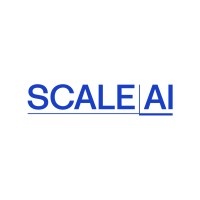
Grant and FundingOpen
SCALE AI — Acceleration
Scale AI ClusterSupports Canadian AI startups and SMEs focused on value chains
Eligible Funding
- Maximum amount : 50,000 $
Eligible Industries
- Manufacturing
- Transportation and warehousing
- Professional, scientific and technical services
Types of eligible projects
CommercializationArtificial Intelligence (AI)Innovation

Tax CreditsOpen
Development of E-Business Tax Credit (CDAE)
Investissement Québec (IQ)Tax credit for development of a Quebec e-business
Eligible Funding
- Up to 30% of project cost
Eligible Industries
- Information and cultural industries
- Finance and insurance
- Professional, scientific and technical services
Types of eligible projects
Artificial Intelligence (AI)TechnologyHuman ResourcesInnovationDigital Transformation

Grant and FundingClosed
NovaScience Program - Support for projects in scientific culture and innovation
Gouvernement du QuébecNovaScience promotes scientific culture and innovation development
Eligible Funding
- Maximum amount : 200,000 $
- Up to 80% of project cost
Eligible Industries
- Information and cultural industries
- Professional, scientific and technical services
- Educational services
Types of eligible projects
Artificial Intelligence (AI)TechnologyInnovation

Grant and FundingOpen
ESSOR – Component 1B: Support for investment projects (digital diagnostics)
Investissement Québec (IQ)Support for investment projects through digital transformation
Eligible Funding
- Maximum amount : 20,000 $
- Up to 50% of project cost
Eligible Industries
- All industries
Types of eligible projects
Artificial Intelligence (AI)InnovationDigital Transformation
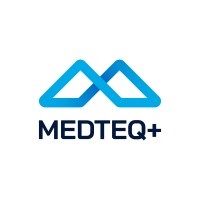
Grant and FundingOpening Soon
MEDTEQ+ — AVISÉ program
Consortium de recherche et d’innovation en technologies médicales du QuébecFunding for validation and evaluation of innovative health technologies
Eligible Funding
- Maximum amount : 700,000 $
- Up to 50% of project cost
Eligible Industries
- Professional, scientific and technical services
- Health care and social assistance
Types of eligible projects
CommercializationArtificial Intelligence (AI)TechnologyInnovation

Grant and FundingOpen
CED — Regional Artificial Intelligence Initiative
Canada Economic Development for Quebec Regions (CED)Supports AI technology development and adoption by Canadian SMEs
Eligible Funding
- Up to 50% of project cost
Eligible Industries
- Agriculture, forestry, fishing and hunting
- Manufacturing
- Information and cultural industries
Types of eligible projects
CommercializationArtificial Intelligence (AI)

Partnering and CollaborationGrant and FundingOpen
Call for collaborative and structuring innovation projects in Quebec's strategic sectors
Gouvernement du QuébecCollaborative innovation funding for Quebec's strategic sectors
Eligible Funding
- Maximum amount : 1,000,000 $
- Up to 35% of project cost
Eligible Industries
- Utilities
- Manufacturing
- Transportation and warehousing
- Information and cultural industries
Types of eligible projects
Artificial Intelligence (AI)TechnologyEnvironment and ClimateInnovationDigital Transformation

Grant and FundingClosed
Collaborative Industrial Research and Support to Innovative Entrepreneurship — Stream 3
Ministère de l'économie, de l'innovation et de l'énergie du Québec (MEIE)Support for business clusters to develop large-scale innovation projects
Eligible Funding
- Maximum amount : 1,500,000 $
- Up to 50% of project cost
Eligible Industries
- Manufacturing
- Information and cultural industries
- Professional, scientific and technical services
Types of eligible projects
Artificial Intelligence (AI)Innovation

Grant and FundingClosed
MTRIC — PARTENAR-IA — Industry
Metal Transformation Research and Innovation Consortium (MTRIC)Funding for Quebec metal transformation innovative collaborations in AI
Eligible Funding
- Maximum amount : 1,500,000 $
- Up to 35% of project cost
Eligible Industries
- Mining, quarrying, and oil and gas extraction
- Manufacturing
Types of eligible projects
Artificial Intelligence (AI)Technology

Grant and FundingOpen
Capitale-Innovation
Quebec City (FLI)Supports business innovation, commercialization, and market expansion projects
Eligible Funding
- Maximum amount : 150,000 $
- Up to 50% of project cost
Eligible Industries
- Agriculture, forestry, fishing and hunting
- Manufacturing
- Information and cultural industries
- Finance and insurance
Types of eligible projects
CommercializationArtificial Intelligence (AI)TechnologyEnvironment and ClimateInnovation

Grant and FundingClosed
Collaborative Industrial Research and Support to Innovative Entrepreneurship — Stream 1
Ministère de l'économie, de l'innovation et de l'énergie du Québec (MEIE)Funding for collaborative projects in AI
Eligible Funding
- Maximum amount : 150,000 $
- Up to 50% of project cost
Eligible Industries
- Information and cultural industries
- Professional, scientific and technical services
Types of eligible projects
Artificial Intelligence (AI)TechnologyInnovation

Researchers And FacilitiesPartnering and CollaborationGrant and FundingClosed
Call for innovation projects in artificial intelligence and quantum technologies – collaborative industrial research and support for entrepreneurship
Gouvernement du QuébecSupports collaborative innovation in artificial intelligence and quantum technologies
Eligible Funding
- Maximum amount : 1,500,000 $
- Up to 35% of project cost
Eligible Industries
- Agriculture, forestry, fishing and hunting
- Mining, quarrying, and oil and gas extraction
- Utilities
- Construction
Types of eligible projects
Artificial Intelligence (AI)TechnologyInnovation

Grant and FundingOpen
Entrepreneurial grant
Quebec City (FLI)Supports new business creation and structured business succession in Québec
Eligible Funding
- Maximum amount : 25,000 $
- Up to 50% of project cost
Eligible Industries
- Agriculture, forestry, fishing and hunting
- Manufacturing
- Information and cultural industries
- Finance and insurance
Types of eligible projects
CommercializationArtificial Intelligence (AI)TechnologyEnvironment and ClimateHuman ResourcesBusiness BuyoutInnovation

Grant and FundingOpen
Quebec City — Major projects
Quebec City (FLI)Supports significant business investments in targeted Quebec City sectors
Eligible Funding
- Maximum amount : 1,000,000 $
- Up to 25% of project cost
Eligible Industries
- Agriculture, forestry, fishing and hunting
- Manufacturing
- Information and cultural industries
- Finance and insurance
Types of eligible projects
Artificial Intelligence (AI)TechnologyEnvironment and ClimateInnovation

Tax CreditsOpen
Development of E-Business Tax Credit Integrating Artificial Intelligence (CDAEIA)
Investissement Québec (IQ)Supports digital business projects integrating artificial intelligence in Quebec
Eligible Funding
- Up to 30% of project cost
Eligible Industries
- Information and cultural industries
- Professional, scientific and technical services
- Administrative and support, waste management and remediation services
Types of eligible projects
Artificial Intelligence (AI)TechnologyInnovationDigital Transformation

Grant and FundingClosed
MEDTEQ+ — PARTENAR-IA — Industry
Consortium de recherche et d’innovation en technologies médicales du QuébecFunding for Quebec innovative collaborations in AI for health technologies
Eligible Funding
- Maximum amount : 150,000 $
- Up to 50% of project cost
Eligible Industries
- Agriculture, forestry, fishing and hunting
- Mining, quarrying, and oil and gas extraction
- Manufacturing
- Health care and social assistance
Types of eligible projects
Artificial Intelligence (AI)TechnologyInnovation
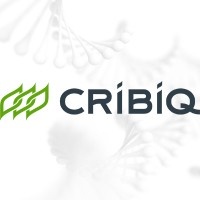
Grant and FundingClosed
CRIBIQ — PARTENAR-IA — Industry
Consortium de recherche et d'innovations en bioprocédés industriels au Québec (CRIBIQ)Funding for Quebec innovative collaborations in AI
Eligible Funding
- Maximum amount : 350,000 $
- Up to 75% of project cost
Eligible Industries
- Agriculture, forestry, fishing and hunting
- Manufacturing
- Professional, scientific and technical services
- Other services (except public administration)
Types of eligible projects
Artificial Intelligence (AI)
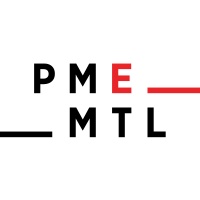
Grant and FundingExpert AdviceLoans and Capital investmentsClosed
PME MTL — Call for projects : Innovation
PME MTLSupports innovative business projects accelerating technology adoption in Montréal
Eligible Funding
- Maximum amount : 50,000 $
- Up to 80% of project cost
Eligible Industries
- Manufacturing
- Information and cultural industries
- Professional, scientific and technical services
- Educational services
Types of eligible projects
CommercializationArtificial Intelligence (AI)TechnologyInnovation

Grant and FundingClosed
Celebration and Commemoration Program
Canadian HeritageFunding for commemorative and celebratory pandemic recovery initiatives
Eligible Funding
- Maximum amount : 100,000 $
Eligible Industries
- Information and cultural industries
- Educational services
- Health care and social assistance
- Arts, entertainment and recreation
Types of eligible projects
CommercializationArtificial Intelligence (AI)TechnologyEnvironment and ClimateHuman ResourcesBusiness BuyoutInnovationDigital Transformation

Grant and FundingSuspended
Innovation Program — Stream 1 – Support for mobilising projects
Investissement Québec (IQ)Transport technology innovation projects funding in Quebec
Eligible Funding
- From $4,000,000 to $10
- Up to 50% of project cost
Eligible Industries
- Transportation and warehousing
Types of eligible projects
CommercializationArtificial Intelligence (AI)TechnologyEnvironment and ClimateInnovation

Grant and FundingClosed
CED Aerospace Regional Recovery Initiative
Canada Economic Development for Quebec Regions (CED)Funding to recover Quebec's aerospace sector
Eligible Funding
- No Condition
Eligible Industries
- Manufacturing
Types of eligible projects
CommercializationArtificial Intelligence (AI)Environment and ClimateDigital Transformation

Researchers And FacilitiesPartnering and CollaborationExpert AdviceOpen
Advanced Manufacturing program
National Research Council Canada (NRC)Supporting innovation and digitalization in advanced manufacturing technologies
Eligible Funding
- No Condition
Eligible Industries
- Manufacturing
- Transportation and warehousing
Types of eligible projects
Artificial Intelligence (AI)TechnologyEnvironment and ClimateInnovationDigital Transformation

Grant and FundingOpen
Productivity-Skills
Gouvernement du QuébecFunds workforce training projects to boost SME productivity and competitiveness
Eligible Funding
- Up to 85% of project cost
Eligible Industries
- Agriculture, forestry, fishing and hunting
- Manufacturing
- Transportation and warehousing
- Educational services
Types of eligible projects
Artificial Intelligence (AI)Environment and ClimateHuman ResourcesInnovationDigital Transformation

Partnering and CollaborationGrant and FundingSuspended
PROMPT — Artificial intelligence
PROMPTSupports Quebec businesses in collaborative artificial intelligence innovation projects
Eligible Funding
- Maximum amount : 1,500,000 $
- Up to 35% of project cost
Eligible Industries
- Information and cultural industries
- Professional, scientific and technical services
Types of eligible projects
CommercializationArtificial Intelligence (AI)TechnologyInnovation

Grant and FundingExpert AdviceOpen
Guidance grants
Quebec City (FLI)Funding for business growth through specialized consulting services
Eligible Funding
- Maximum amount : 25,000 $
- Up to 30% of project cost
Eligible Industries
- Agriculture, forestry, fishing and hunting
- Utilities
- Manufacturing
- Information and cultural industries
Types of eligible projects
Artificial Intelligence (AI)TechnologyEnvironment and ClimateInnovationDigital Transformation
Access over 10 000 different funding opportunities
Try the helloDarwin platform today and find programs that fit your needs
The helloDarwin application makes it easy to unlock grants so your business can grow faster—with less hassle and more impact.

Grant and FundingClosed
MTRIC — PSO SME
Metal Transformation Research and Innovation Consortium (MTRIC)Funding for industrial research projects
Eligible Funding
- Maximum amount : 1,500,000 $
- Up to 40% of project cost
Eligible Industries
- Mining, quarrying, and oil and gas extraction
- Manufacturing
Types of eligible projects
Artificial Intelligence (AI)TechnologyInnovation
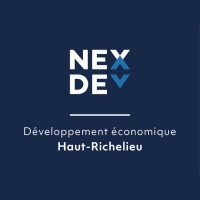
Grant and FundingExpert AdviceLoans and Capital investmentsOpen
Productivity and Sustainable Innovation Fund – Component 3: Project Implementation, It's time to take action!
NexDev | Haut-Richelieu Economic DevelopmentFinancial support for industrial productivity and digital transformation projects
Eligible Funding
- Maximum amount : 10,000 $
- Up to 10% of project cost
Eligible Industries
- Manufacturing
- Wholesale trade
- Transportation and warehousing
Types of eligible projects
Artificial Intelligence (AI)TechnologyInnovationDigital Transformation

Grant and FundingExpert AdviceOpen
Productivity and Sustainable Innovation Fund – Stream 1: Company consultations/micro-diagnosis and selection assistance
NexDev | Haut-Richelieu Economic DevelopmentFinancial support for productivity and innovation in local industries
Eligible Funding
- Maximum amount : 10,000 $
- Up to 50% of project cost
Eligible Industries
- Manufacturing
- Wholesale trade
- Transportation and warehousing
- Other services (except public administration)
Types of eligible projects
Artificial Intelligence (AI)TechnologyInnovationDigital Transformation

Grant and FundingClosed
PRIMA — PARTENAR-IA — Industry
Advanced Materials Research and Innovation Hub (PRIMA)Funding for Quebec innovative collaborations in AI for advanced materials
Eligible Funding
- Maximum amount : 150,000 $
- Up to 50% of project cost
Eligible Industries
- Agriculture, forestry, fishing and hunting
- Manufacturing
Types of eligible projects
Artificial Intelligence (AI)TechnologyInnovation

Grant and FundingOpen
Rail Transportation Infrastructure and Modal Integration Support Program — Part 3 — Studies
Minister of Transport and Sustainable Mobility of QuebecFinancial support for studies improving Quebec rail and modal integration
Eligible Funding
- Maximum amount : 250,000 $
- Up to 66.67% of project cost
Eligible Industries
- Agriculture, forestry, fishing and hunting
- Mining, quarrying, and oil and gas extraction
- Utilities
- Construction
Types of eligible projects
CommercializationArtificial Intelligence (AI)TechnologyEnvironment and ClimateConstruction and Renovation Human ResourcesBusiness BuyoutInnovationDigital Transformation

Other SupportResearchers And FacilitiesExpert AdviceOpen
OPZI – Innovation in optics and photonics
OptechAccelerated R&D support for optics photonics and quantum innovation
Eligible Funding
- Up to 40% of project cost
Eligible Industries
- Manufacturing
- Professional, scientific and technical services
Types of eligible projects
Artificial Intelligence (AI)TechnologyInnovation
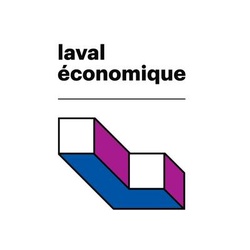
Grant and FundingClosed
Laval économique — Tech shift – Manufacturing
Laval EconomiqueDigital transformation grants for Laval manufacturers
Eligible Funding
- Maximum amount : 75,000 $
- Up to 25% of project cost
Eligible Industries
- Manufacturing
Types of eligible projects
Artificial Intelligence (AI)Digital Transformation

Grant and FundingClosed
Innovation in Quantum Technologies — Stream 3
Ministère de l'économie, de l'innovation et de l'énergie du Québec (MEIE)Money for collaborative projects in partnership with public research centres
Eligible Funding
- Maximum amount : 1,500,000 $
- Up to 35% of project cost
Eligible Industries
- Agriculture, forestry, fishing and hunting
- Mining, quarrying, and oil and gas extraction
- Construction
- Manufacturing
Types of eligible projects
Artificial Intelligence (AI)Technology

Partnering and CollaborationGrant and FundingExpert AdviceClosed
Game Changer Pitch Competition
Decentralised Energy Canada (DEC)Pitch competition for innovative decentralised energy technology companies
Eligible Funding
- No Condition
Eligible Industries
- Utilities
- Information and cultural industries
- Professional, scientific and technical services
Types of eligible projects
Artificial Intelligence (AI)TechnologyEnvironment and ClimateInnovation

Grant and FundingExpert AdviceLoans and Capital investmentsOpen
MRC Sept-Rivières — Support for entrepreneurship (SE)
MRC de Sept-RivièresFinancial support for local entrepreneurs and social economy projects
Eligible Funding
- Maximum amount : 150,000 $
- Up to 50% of project cost
Eligible Industries
- Agriculture, forestry, fishing and hunting
- Manufacturing
- Information and cultural industries
- Accommodation and food services
Types of eligible projects
Artificial Intelligence (AI)TechnologyEnvironment and ClimateBusiness BuyoutInnovationDigital Transformation

Expert AdviceOpen
NUMERIA program
Computer Research Institute of Montreal (CRIM)Training in Artificial Intelligence (AI) for Quebec SMEs
Eligible Funding
- No Condition
Eligible Industries
- Manufacturing
- Information and cultural industries
- Professional, scientific and technical services
- Health care and social assistance
Types of eligible projects
Artificial Intelligence (AI)TechnologyInnovation

Grant and FundingLoans and Capital investmentsArchived
Québec city — Supporting the development of the Saint-Roch district
Quebec City (FLI)Financial support for business development projects in Saint-Roch
Eligible Funding
- Maximum amount : 500,000 $
- Up to 25% of project cost
Eligible Industries
- Information and cultural industries
- Finance and insurance
- Professional, scientific and technical services
- Arts, entertainment and recreation
Types of eligible projects
Artificial Intelligence (AI)TechnologyInnovationDigital Transformation

Grant and FundingClosed
innovÉÉ — PARTENAR-IA — Industry
innovÉÉFunding for Quebec electricity innovative collaborations in AI
Eligible Funding
- Maximum amount : 1,500,000 $
- Up to 35% of project cost
Eligible Industries
- Agriculture, forestry, fishing and hunting
- Mining, quarrying, and oil and gas extraction
- Construction
- Manufacturing
Types of eligible projects
Artificial Intelligence (AI)TechnologyInnovation

Tax CreditsOpen
Show production tax credit
Société de développement des entreprises culturelles (SODEC)Supports Quebec show producers with refundable tax assistance
Eligible Funding
- Maximum amount : 1,250,000 $
- Up to 35% of project cost
Eligible Industries
- Arts, entertainment and recreation
Types of eligible projects
CommercializationArtificial Intelligence (AI)TechnologyEnvironment and ClimateHuman ResourcesBusiness BuyoutInnovationDigital Transformation
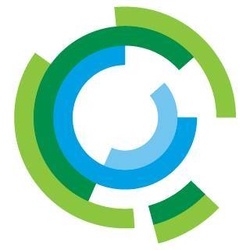
Expert AdviceOpen
Quebec International — Set up or expand a business
Québec InternationalSupport to start or grow a business in Quebec City
Eligible Funding
- No Condition
Eligible Industries
- Manufacturing
- Information and cultural industries
- Finance and insurance
- Health care and social assistance
Types of eligible projects
Artificial Intelligence (AI)TechnologyHuman ResourcesBusiness BuyoutInnovationDigital Transformation

Expert AdviceClosed
AI Expertise Program
Caisse de dépôt et placement du QuébecSupports technological innovation and AI integration for Québec companies
Eligible Funding
- No Condition
Eligible Industries
- Professional, scientific and technical services
Types of eligible projects
Artificial Intelligence (AI)

Grant and FundingClosed
Call for innovative projects in artificial intelligence: collaborative industrial research and support for innovative entrepreneurship
Gouvernement du QuébecSupports Quebec businesses innovating and commercializing artificial intelligence technologies
Eligible Funding
- Maximum amount : 1,500,000 $
Eligible Industries
- Professional, scientific and technical services
Types of eligible projects
CommercializationArtificial Intelligence (AI)Innovation

Grant and FundingArchived
Invest-AI — Funding AI adoption
Ivado LabsSupports Quebec businesses integrating AI to boost productivity and competitiveness
Eligible Funding
- No Condition
Eligible Industries
- Professional, scientific and technical services
Types of eligible projects
Artificial Intelligence (AI)Technology

Grant and FundingClosed
MEDTEQ+ — PARTENAR-IA — Academic
Consortium de recherche et d’innovation en technologies médicales du QuébecFunding for Quebec R&D collaborations in AI for health technologies
Eligible Funding
- Maximum amount : 1,500,000 $
- Up to 35% of project cost
Eligible Industries
- Transportation and warehousing
- Health care and social assistance
Types of eligible projects
Artificial Intelligence (AI)Construction and Renovation
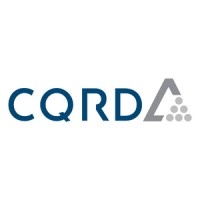
Grant and FundingOpen
CQRDA — PARTENAR-IA — Business
Centre québécois de recherche et de développement de l’aluminium (CQRDA)Funding for Quebec innovative collaborations in AI, using aluminium
Eligible Funding
- Maximum amount : 1,500,000 $
- Up to 50% of project cost
Eligible Industries
- Agriculture, forestry, fishing and hunting
- Mining, quarrying, and oil and gas extraction
- Construction
- Manufacturing
Types of eligible projects
Artificial Intelligence (AI)TechnologyInnovation

Grant and FundingClosed
PRIMA — Call For Projects In Artificial Intelligence And Quantum Technologies
Advanced Materials Research and Innovation Hub (PRIMA)Funding for AI and quantum technology innovation projects
Eligible Funding
- Maximum amount : 1,500,000 $
- Up to 35% of project cost
Eligible Industries
- Agriculture, forestry, fishing and hunting
- Manufacturing
- Transportation and warehousing
- Information and cultural industries
Types of eligible projects
Artificial Intelligence (AI)TechnologyInnovation

Grant and FundingClosed
Pierre Péladeau Scholarships
AsterXFunding and support for innovative university student entrepreneurs in Quebec
Eligible Funding
- Maximum amount : 75,000 $
Eligible Industries
- Agriculture, forestry, fishing and hunting
- Mining, quarrying, and oil and gas extraction
- Manufacturing
- Retail trade
Types of eligible projects
Artificial Intelligence (AI)TechnologyEnvironment and ClimateHuman ResourcesInnovation

Grant and FundingOpen
Quebec Research Fund — Society and Culture Sector (FRQSC)
Québec Research FundSupports research, knowledge dissemination, and student training in Quebec
Eligible Funding
- No Condition
Eligible Industries
- Professional, scientific and technical services
- Educational services
- Health care and social assistance
- Arts, entertainment and recreation
Types of eligible projects
Artificial Intelligence (AI)TechnologyEnvironment and ClimateHuman ResourcesInnovationDigital Transformation

Grant and FundingOpen
CQDM — PARTENAR-IA — Academic
Quebec Consortium for Drug Discovery (CQDM)Funding for Quebec biopharmaceutical R&D collaborations in AI
Eligible Funding
- Maximum amount : 1,500,000 $
- Up to 50% of project cost
Eligible Industries
- Health care and social assistance
Types of eligible projects
Artificial Intelligence (AI)

Grant and FundingClosed
MEDTEQ+ — Call for Projects – FEMTECH
Consortium de recherche et d’innovation en technologies médicales du QuébecFunding for innovative women’s health technology projects in Quebec
Eligible Funding
- Maximum amount : 1,500,000 $
- Up to 20% of project cost
Eligible Industries
- Professional, scientific and technical services
- Health care and social assistance
Types of eligible projects
Artificial Intelligence (AI)TechnologyInnovation

Partnering and CollaborationGrant and FundingClosed
MEDTEQ+ — Impact
Consortium de recherche et d’innovation en technologies médicales du QuébecFunding for collaborative healthcare technology projects in Quebec
Eligible Funding
- Maximum amount : 1,500,000 $
- Up to 40% of project cost
Eligible Industries
- Professional, scientific and technical services
- Educational services
- Health care and social assistance
Types of eligible projects
Artificial Intelligence (AI)TechnologyInnovation

Grant and FundingClosed
innovÉÉ — PARTENAR-IA — Academic
innovÉÉFunding for Quebec electricity R&D collaborations in AI
Eligible Funding
- Maximum amount : 150,000 $
- Up to 50% of project cost
Eligible Industries
- All industries
Types of eligible projects
Artificial Intelligence (AI)Innovation

Grant and FundingClosed
ESM — Digital Acceleration
Économie du Savoir Mauricie (ESM)Boost your business's digital maturity with non-repayable funding
Eligible Funding
- Maximum amount : 27,000 $
- Up to 45% of project cost
Eligible Industries
- Manufacturing
- Information and cultural industries
- Professional, scientific and technical services
Types of eligible projects
Artificial Intelligence (AI)Digital Transformation

Partnering and CollaborationGrant and FundingOpen
Export 4.0 program — Advanced and Intelligent Technologies
Excellence industrielle Saint-LaurentSupports Quebec businesses in expanding with advanced technologies
Eligible Funding
- No Condition
Eligible Industries
- Manufacturing
- Information and cultural industries
- Professional, scientific and technical services
Types of eligible projects
CommercializationArtificial Intelligence (AI)Technology

Grant and FundingClosed
CQDM — PARTENAR-IA — Industry
Quebec Consortium for Drug Discovery (CQDM)Funding for Quebec innovative biopharmaceutical collaborations in AI
Eligible Funding
- Maximum amount : 1,500,000 $
- Up to 35% of project cost
Eligible Industries
- All industries
Types of eligible projects
Artificial Intelligence (AI)TechnologyConstruction and Renovation Innovation

Grant and FundingOpenClosing Soon
PARTENAR-IA — CRIAQ — Academic
Consortium for Research and Innovation in Aerospace in Quebec (CRIAQ)Funding for Quebec aerospace R&D collaborations in AI
Eligible Funding
- Maximum amount : 500,000 $
- Up to 40% of project cost
Eligible Industries
- Manufacturing
- Transportation and warehousing
Types of eligible projects
Artificial Intelligence (AI)Innovation

Partnering and CollaborationGrant and FundingArchived
MTRIC — Start Program
Metal Transformation Research and Innovation Consortium (MTRIC)Advance metal transformation processes and products
Eligible Funding
- Maximum amount : 10,000 $
- Up to 70% of project cost
Eligible Industries
- Manufacturing
Types of eligible projects
Artificial Intelligence (AI)Environment and ClimateInnovation

Partnering and CollaborationGrant and FundingClosed
CQRDA — PARTENAR-IA — Academic
Centre québécois de recherche et de développement de l’aluminium (CQRDA)Funding for Quebec R&D collaborations in AI, using aluminium
Eligible Funding
- Maximum amount : 1,500,000 $
- Up to 40% of project cost
Eligible Industries
- Manufacturing
- Professional, scientific and technical services
Types of eligible projects
Artificial Intelligence (AI)

Grant and FundingOpen
Défi-Québec, an entrepreneurial city
Quebec City (FLI)Supports innovative startups in Québec and Wendake to launch operations
Eligible Funding
- Maximum amount : 50,000 $
- Up to 50% of project cost
Eligible Industries
- Utilities
- Manufacturing
- Information and cultural industries
- Professional, scientific and technical services
Types of eligible projects
CommercializationArtificial Intelligence (AI)TechnologyEnvironment and ClimateInnovation

Grant and FundingClosed
Support program to help victims of crime and promote their recovery - Stream 1
Quebec Ministry of JusticeSupports research, awareness, and training for victim assistance
Eligible Funding
- No Condition
Eligible Industries
- Educational services
- Health care and social assistance
- Public administration
Types of eligible projects
Artificial Intelligence (AI)Human Resources

Grant and FundingArchived
The Artificial Intelligence innovation funding program (PIIA) - Part 1: Scope
PROMPTQuebec's AI innovation funding program for collaborations
Eligible Funding
- Maximum amount : 1,500,000 $
- Up to 50% of project cost
Eligible Industries
- Information and cultural industries
- Professional, scientific and technical services
- Other services (except public administration)
Types of eligible projects
Artificial Intelligence (AI)TechnologyInnovation

Partnering and CollaborationGrant and FundingClosed
PROMPT — PARTENAR-IA
PROMPTFunding for Quebec innovative collaborations in AI for ICT
Eligible Funding
- Maximum amount : 1,500,000 $
- Up to 50% of project cost
Eligible Industries
- Professional, scientific and technical services
- Educational services
- Health care and social assistance
Types of eligible projects
Artificial Intelligence (AI)

Grant and FundingClosed
PRIMA — PARTENAR-IA — Academic
Advanced Materials Research and Innovation Hub (PRIMA)Funding for Quebec R&D collaborations in AI for advanced materials
Eligible Funding
- Maximum amount : 500,000 $
- Up to 50% of project cost
Eligible Industries
- Manufacturing
Types of eligible projects
Artificial Intelligence (AI)

Grant and FundingArchived
The Artificial Intelligence innovation funding program (PIIA) - Part 2 : SMEs
PROMPTAI Innovation Funding Program for Quebec Businesses
Eligible Funding
- Maximum amount : 350,000 $
- Up to 50% of project cost
Eligible Industries
- Manufacturing
- Information and cultural industries
- Professional, scientific and technical services
- Other services (except public administration)
Types of eligible projects
Artificial Intelligence (AI)TechnologyInnovation

Tax CreditsArchived
Capital Synergie
Investissement Québec (IQ)Supports business investment in innovative, high-growth Quebec companies
Eligible Funding
- Maximum amount : 225,000 $
- Up to 30% of project cost
Eligible Industries
- Manufacturing
- Information and cultural industries
- Professional, scientific and technical services
Types of eligible projects
Artificial Intelligence (AI)TechnologyEnvironment and ClimateInnovation
Frequently asked questions about AI grants in Quebec
Find clear answers to common questions about AI funding, eligibility, deadlines, and programs for SMEs, corporates, and non‑profits in Quebec.
What AI grants are available in Quebec for SMEs?
How do I apply for AI funding in Quebec step by step?
Which AI expenses are typically eligible?
Can I combine RS&DE with grants for AI projects?
What are common AI grant evaluation criteria?
Are GPU purchases and cloud credits eligible in Quebec AI programs?
What is the difference between adoption and R&D AI funding?
How long do AI grant decisions take in Quebec?
Can nonprofits and public institutions access AI funding?
What documents are required for an AI grant application in Quebec?
What else should I know about Grants and Funding for Artificial Intelligence in Quebec?
Find similar grants
By Funding Type
By Business Size
By Service
By Audience
By Industry
Education Grants in Quebec
Grants and Funding for Culture in Quebec
Grants and Funding for Financial Services in Quebec
Grants and Funding for Green Manufacturing and Decarbonization in Quebec
By Industry Subsectors
By Administrative Region
Grants and Funding in Abitibi-Témiscamingue
Grants and Funding in Bas-Saint-Laurent
Grants and Funding in Capitale-Nationale
Grants and Funding in Centre-du-Québec
Grants and Funding in Chaudière-Appalaches
Grants and Funding in Côte-Nord